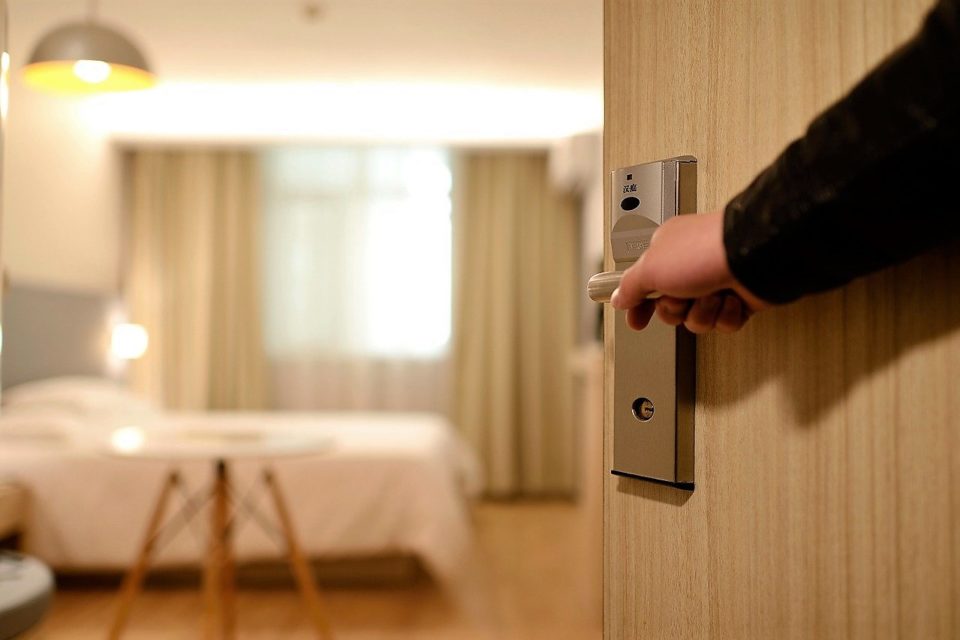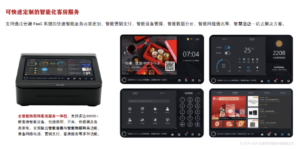China’s hospitality sector looks to the Internet of Things to help it recover.
The impact of COVID-19 has made consumers rethink what they are looking for in a hotel. Establishments that were once thought of as places of safety, comfort, and luxury might now be seen as potential health hazards.
The global travel industry has been disrupted by a dramatic drop in hotel occupancy rates due to bans and tight restrictions.
The slowdown has hit China’s hotels hard. Before the outbreak, they had experienced a boom in holiday travel thanks to rising standards of living and disposable incomes. The number of hotel rooms in China doubled from 2 million in 2015 to 4 million in 2019.
The pandemic abruptly changed all that. And while it is probably safe to nothing will ever be quite the same again, China’s hotel industry is working its way back to recovery and is embracing smart new health-focused technologies to help get it there.
“The importance of health and wellness has been raised to unprecedented heights by this novel coronavirus outbreak,” says a spokesman from People’s Health, one of China’s best-known health information websites.
New experiences for hotel guests
This concern has inadvertently created a space for the Internet of Things (IoT) and big data to bring about a transformation in the hospitality sector.
Imagine the next time you check into a hotel room. Instead of an alarm clock on the bedside table is a sleek electronic box with an integrated touch screen interface. (See image left).
The interface gives you control over all the standard hotel devices; TV, lights, thermostat — plus some surprising new features.
These include sleep and air-quality monitors and even an anti-epidemic “Air Safety Guard” that kills bacteria and viruses with ultraviolet rays.
The box is the DuotelCube, an all-in-one IoT device from Chinese company, Duotel.
Duotel and People’s Health have launched an initiative known as “PeopleZhu” to improve the safety of hotels and restore consumers’ confidence in the industry. The program has already been successfully implemented at several Chinese hotels, like Mehood Hotel, New Century Hotels & Resorts, and Youxi Movie Hotel.
“Smart” hotels for good health
Because the DuotelCube works with the Internet of Things (IoT), it allows guests to interact with the hotel staff through the box. Room service, payments, even language translation can be accommodated via DuotelCube, minimizing face-to-face contact.
Duotel’s line of plug and play wireless devices also let hotels upgrade to smart hotels quickly and easily, without the need for expensive renovations.
At the heart of this digital revolution lies the successful partnership forged between Duotel and Microsoft.
“Microsoft Intelligent Cloud Azure has a very clear advantage in terms of global business deployment and service support capabilities,” says a spokesman from Duotel. “Technologies such as Microsoft’s powerful Azure IoT Hub and Azure IoT Central enable us to quickly build a complete and stable smart IoT platform.”
Building on Microsoft’s powerful Azure Smart Cloud Service, Duotel has gained an industry-leading edge and achieved outstanding market performance in technological sectors — including blockchain, edge computing, digital twins, smart translation, and natural language processing (NLP).
Looking ahead, Duotel is working together with partners like People’s Health to create smarter and safer health-oriented hotel solutions. These will empower the hotel industry to pursue new business models that are focused on smart health and promote healthy travel.






